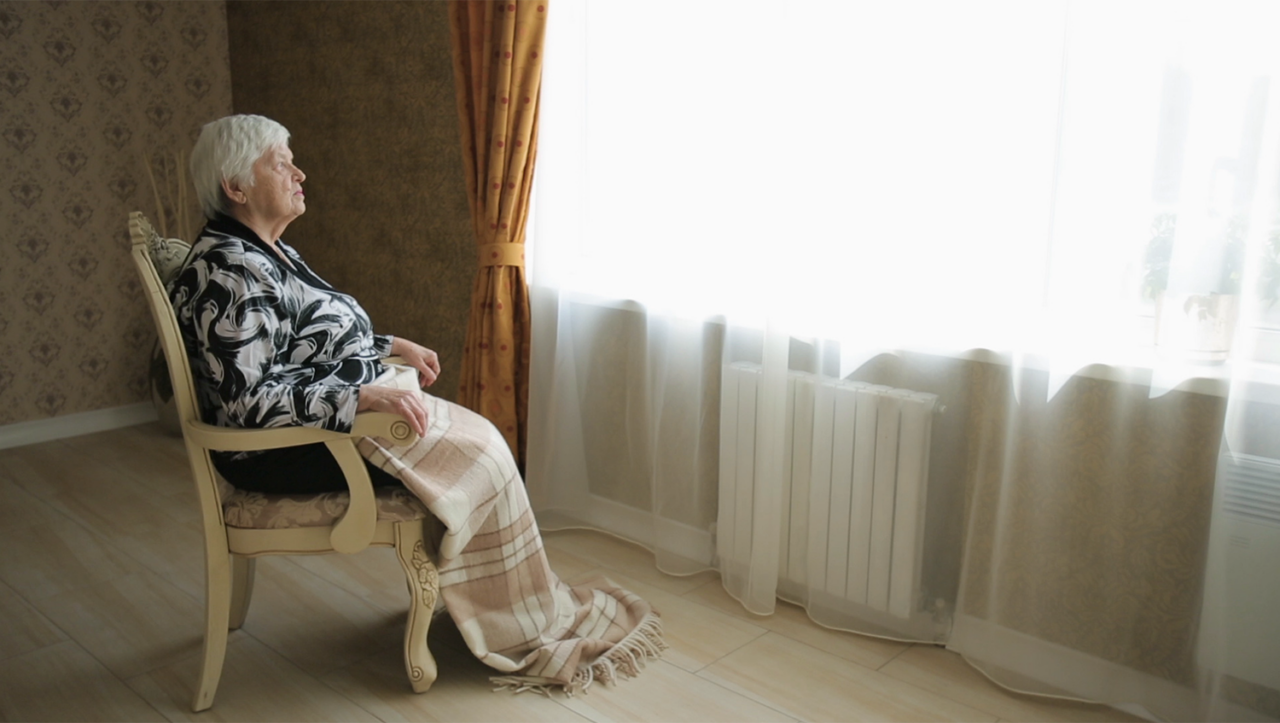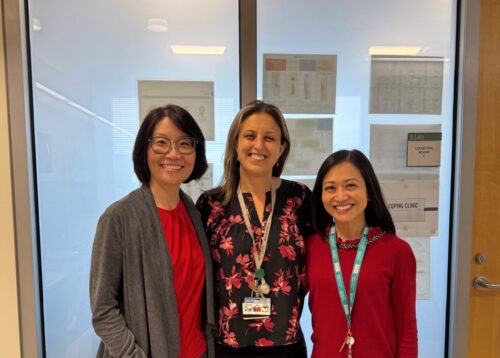How BMC Meets the Complex Challenge of Substance Use Disorder in Older Adults
September 5, 2024

Overdoses deaths in adults 65 and older increased 350% from 2000 to 2020. A partnership between Geriatrics and the Addiction Consult Service is hoping to address this growing concern.
Substance use disorder in older adults rarely made headlines — until the Centers for Disease Control (CDC) published its report “Drug Overdose Deaths in Adults Aged 65 and Over” in 2020. But for years before that, a team of experts in addiction and geriatrics at Boston Medical Center (BMC) have been working closely together to provide the best care for this unique population. Because of their direct experiences, they were saddened but not surprised to read the CDC’s reported data: There were 5,209 recorded overdose deaths in adults aged 65 and over in the U.S. in 2020, representing a more than 350% increase since 2000.
Despite the national movement to address the overdose epidemic, older adults are often overlooked as a population at risk of addiction, says Rossana “Rosie” Lau-Ng, MD, MBA, geriatrician and medical director of BMC’s nursing home program. She urges primary care providers, including geriatricians, to learn about substance use in aging populations and to get more comfortable talking with their patients about it.
“These patients are often self-referring to treatment options because they’re not getting the help they need from the medical community, and they are falling through the cracks,” says Lau-Ng. “This problem has been escalating to the point where it is finally showing up in the statistics.”
Two common paths to substance use in older adults
Lau-Ng says that geriatricians see two distinct cohorts of patients with SUD at BMC: those with a history of substance use and those newly exposed. Lau-Ng notes that many of her team’s patients are baby boomers, who grew up in an era when it was more socially acceptable to use substances in what may be unhealthy ways.
“These patients seem to appreciate us being curious about their past and frank about our concerns,” says Lau-Ng.
Others, she notes, turn to substances later in life, when faced with depression, anxiety, trauma or isolation—which is common among geriatric people and has been exacerbated by the COVID-19 pandemic.
These patients are often self-referring to treatment options because they’re not getting the help they need from the medical community, and they are falling through the cracks
Rossana “Rosie” Lau-Ng, MD, MBA, geriatrician and medical director of BMC’s nursing home program
Though clinicians may vary their approach for each cohort, what’s most important is that the approach must start with compassion, says Zoe Weinstein, MD, MS, primary care physician and director of BMC’s interdisciplinary Addiction Consult Service.
“The use of substances is so demonized, but there is usually something deeper going on,” Weinstein says, noting that common reasons are to experience euphoria, escape social stressors, or due to trauma and loss.
“We try to understand why someone is using substances so we can help them find other ways to achieve that same goal without worsening their health or causing them harm,” she adds. “It’s important for us to have a consistent message that is about their individual health and not about assigning a value judgment to their substance use.”
Holistic care at the intersection of geriatrics and substance use
Starting from a place of compassion, providers can use the geriatrics 5Ms communication framework to approach caring for their patients — mind, mobility, medications, multi-complexity, and matters most.
Using the 5Ms framework, BMC’s Geriatrics team works collaboratively with BMC’s Addiction Consult Service to help co-manage geriatric patients with SUD, both as inpatients and as outpatients in adult day programs, in nursing homes, or at home.
Lau-Ng says looking holistically at geriatric patients’ 5Ms has worked well in the context of substance use. For instance, when considering a patient’s mind, she might identify a cognitive impairment made worse by opioids. Or, in looking at medications, she might determine that the patient should not be on methadone because it interacts with their other prescribed medications. With multi-complexity, Lau-Ng and her colleagues have the institutional infrastructure of BMC in place to be able to address food and housing insecurity, and other social determinants of health (SDoH).
Across settings, Weinstein says that the partnership between the Geriatrics team and the Addiction Consult Service allows them to personalize treatment for older patients.
We try to understand why someone is using substances so we can help them find other ways to achieve that same goal without worsening their health or causing them harm.
zoe weinstein, MD, MS, primary care physician & director of BMC’s interdisciplinary Addiction Consult Service.
“It’s a particular challenge to manage patients with an active substance use disorder and the medical complexity that comes with aging,” she explains, noting common co-occurring conditions, like advanced lung disease, heart disease, cancer, cognitive decline, frailty, or falls. “That’s why coordinated care efforts are so important. At BMC, we have a very strong bi-directional relationship, where we use each other’s specialty knowledge.”
Sharing lessons in treating substance use disorder in older adults
Beyond a willingness to learn and collaborate with their colleagues, Lau-Ng says geriatricians need to be able to meet the needs of their patients with SUD in the community. She sees an opportunity to infuse geriatrics education into opioid treatment centers and skilled nursing facilities.
Weinstein, who is also the site medical director of a local methadone clinic, agrees and works closely with the Geriatrics team to educate community workers. Weinstein and Lau-Ng proactively partnered on a small pilot through BMC’s Grayken Center for Addiction to help their skilled nursing colleagues feel more knowledgeable and comfortable in managing patients with substance use disorder. The two hope to broaden their trainings in the future.
Beyond on-the-ground training, Lau-Ng, a recipient of the Health Resources and Services Administration (HRSA) Geriatric Academic Career Advancement award, has researched and published recommendations on treating older adults with addiction disorders in post-acute care settings. Her research is an example of the broader interest she and a few colleagues, including Chief of Geriatrics, Hollis Day, MD, MS, MHPE, and geriatrician Vassiliki Pravodelov, MD, have in sharing their experiences and expertise widely.
“There is so much need out there, and people want information,” says Lau-Ng. “There is a small group of us who are hosting trainings, speaking at conferences, and writing about substance use in older adults. We are interjecting ourselves into the addiction medicine community so they know what we can offer.”
A version of this story originally ran on Doximity.


